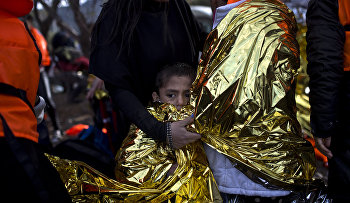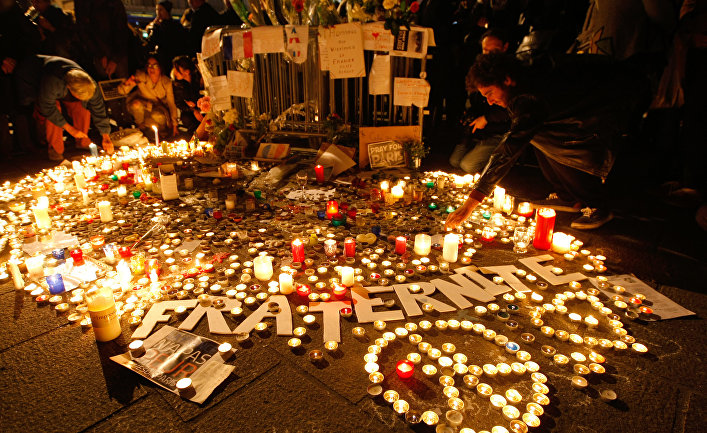On Saturday afternoon ISIL assumed responsibility for the terrorist acts which had been committed on Friday in Paris. Now that its position in Syria is shaken, the terrorist group is clinging desperately for its own existence. Atlantico talks with Alain Chouet, a former French intelligence officer, and Alain Rodier, also a former French intelligence officer, and Deputy Director of the French Centre for Intelligence Research. Rodier is an expert on Islamic terrorism and organized crime.
How much do we know of the nature of these terror attacks, and their perpetrators?
Alain Chouet: As the media has already reported, France has been struck for the first time by ruthless professional killers. In previous cases such operations were limited to “amateurs.” As far as the identities of the attackers, it's still too early to say for sure – but information from bystanders suggests that they were either French nationals, or had been living here for a long time.
Hating refugees is exactly what Isis wants you to do https://t.co/uFI9QOLm47
— The Independent (@Independent) November 17, 2015
Alain Rodier: ISIL has taken responsibility for the terror attacks in Paris and St Denis on 13 November. Preliminary analysis suggests that their claims are correct. This is of great importance, because we need to know the identity of those behind these attacks. The attack on the offices of Charlie Hebdo in January this year was the work of Al-Qaeda, through its 'representation' in Yemen, which goes under the name of “Al-Qaeda in the Arabian Peninsula.” At least one of the Quashi brothers was educated in Yemen. Amedi Qulinabi, who killed two policemen, confirmed that he was acting on behalf of ISIL – but the organization failed to confirm what he had said.
The country and its capital have been under threat for more than a month. But had anyone contemplated there could be a terror attack on such a scale?
Alain Chouet: The Special Service has been sounding the alarm for a year, and trying to let people know that as soon as ISIL's position in the conflict is threatened, they could commit exactly such acts – in order to draw attention to themselves, to bolster their political existence and attract support from outside.
And now exactly that moment has come.
What kind of conclusions should be made from these attacks? What do they tell of of the Islamic State's strategy towards the West? What do they attempt to achieve?
Alain Chouet: The operations of the Russian forces in Syria, and the Kurdish detachments in Iraq have seriously harmed ISIL's position, along with that of allied Islamist groups. It all forces the Salafist leaders to review their strategy, in order to show the problems they can cause for the entire world. The Paris attacks were a continuation of the incident of the explosion of the Russian aircraft – as well as the operations against the Shiites in Beirut and Baghdad. There's no doubt that this is merely a prelude to similar terror attacks in western countries who are members of the coalition. ISIL will be trying to stoke up aggravation and hatred between the Islamic communities in Europe and the countries in which they live.
Alain Rodier: What has happened has confirmed theories of ISIL's shifting strategies. Earlier on this was an extremist movement focused entirely on war in Iraq and Syria – and then in its 'provinces' of Sinai, Libya, Afghanistan and Nigeria. The tipping point was the attack on the Russian Airbus in Egypt — the information is around 90% confirmed on this, and the Lebanese Hezbollah in Beirut. This is alarming news. It means that we can now expect renewed terror attacks anywhere in the world. ISIL hopes to continue to exist by terrorizing the 'infidels'.
IS video threatens to "strike America at its centre in Washington" https://t.co/c67gjuf5TX #ParisAttacks pic.twitter.com/H2rB29DM1D
— Sky News (@SkyNews) November 17, 2015
In any case, France is fighting a war against radical Islamist organizations – Al-Qaeda, and ISIL – so our citizens had better get their heads around this. It's going to affect our daily lives, and will have economic impacts too – things we could well have done without. We've been the target of an attack, and our response should be, at least for a while, to put aside our usual political bickering. We need to show the kind of resistance that the Brits put up to the Nazi bombings of 1941.
What should France's reaction be? Should we expect a stiffening of the Syrian coalition?
Alain Chouet: Many of our citizens may even be unaware of this due to the distances involved, but France is actually already waging a war on a number of fronts in North Africa and the Middle East. France is already seeing results – but it cannot announce martial law within its own border without playing into the hands of the Islamists. We can't assign a gendarme to every citizen — which means the threat will continue as long as Islamist outlaws control vast swathes of Syria, Iraq, and the Maghreb. That makes it more important than ever to put an end to lawlessness in these zones and re-establish the rule of law there – even if we find the political systems there not entirely to our taste.
ISIL said in its announcement that this is 'only the beginning of the storm'. Have they declared war on us?
Alain Chouet: There's a lot of rhetoric going on in that announcement. Of course, ISIL's representatives would never say “We've hit you now, and that's it.” To hang on to their supporters and win over the weak-minded, they have to keep up the terrorist pressure. It's a lot easier than carrying out military retaliations, and makes much more an effect for the Islamic world.
Yes – war has been declared, although it wasn't declared today. It's been going on since the moment we played along with, or even supported the armed Salafite groups – and it will go on until we exterminate them in decisive operations in collaboration with our partners from Arabic and Islamic countries.

Alain Rodier: We need to bear in mind that ISIL has suffered a string of setbacks on Syrian and Iraqi fronts. Even so, we can't say that they're on the point of losing. There's no 'taste of victory' right now. That's important – because it reflects on the adoration it evoked from many people when it was founded back in June 2014. ISIL depends perilously upon the flow of foreign volunteer fighters to join its ranks – who number, according to differing sources, from between 30,000 to 50,000 troops. This means that a wave of terror overseas – by which I mean outside Syria and Iraq – gives them a chance of survival.
You say that ISIL's position in Syria has been weakened. Would they be able to strike at Europe by using streams of migrants?
Alain Chouet: So far ISIL hasn't tried to make use of the streams of migrants – because that would entail far too many risks for them. However, they are losing ground badly now, and they're feeling very exposed. That could mean they might try almost anything to prop up their position – and then things will only become even more difficult.






